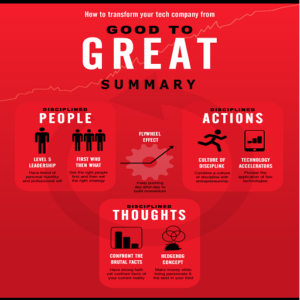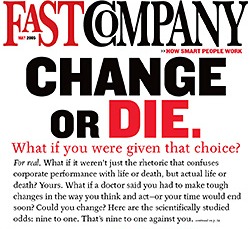-
Mike Ziemski, M.Ed.
I help faith-based schools, parishes, non-profits, and sales professionals advance their mindsets towards systems thinking as a foundation for success in our technology-rich post-pandemic era.
My Sites
SchoolAdvancement
Helping Tuition-Charging Schools Form a Firm Financial Foundation through Systems ThinkingParishAdvancement
Because the people in the pews have to spread the Good News!
Ennyhoo
What I think about when I have time to think.
2 Across Music
My music site, focusing on my work as a bassist and guitaristThe Business Advancement Blog
B2B sales transformed into business development. Today, it's changing again, since business advancement requires systems thinking, acumen & strategic preparation for success!
The Financial Literacy Blog
Articles designed to help shape your mindset to think about money differently - because they don't teach this in high school.
Edu-Cat-Ion
A collection of articles commenting on the state of education in our nation today, and what needs to be done to improve it in a ever-changing marketplace.
1550
LinkedIn Connections
670
Facebook Friends
10
Web Sites Created
5
Books Authored
WHAT THEY SAY
Working with Mike helped us to collect over 98% of tuition with less stress, much less time spent chasing families for money, and more time spent on development activities which has increased enrollment!
Mike provided exceptional service to St. Mary’s School as our primary interface for Tuition Management and Donor Management solutions. Beyond knowing the product inside and out and understanding what products would be a great fit for St. Mary’s School, Mike provides invaluable guidance and leadership relative to school advancement strategies. He is personable, credible and demonstrates high integrity. I would recommend Mike any day, over and over again!
I have had the pleasure of partnering with Mike on two separate occasions and with two different schools. Mike has always been quick to respond to questions and issues, precise in his solutions and understanding of our needs. What Mike promised us, he delivered! I would highly recommend partnering with Mike.
The Change Management Blog
Jim Collins on Change
Back in October of 2001, Jim Collins published one of his most well-known works: “Good to Great: Why Some Companies Make the Leap…and Others Don’t.” It’s been one of the staples in the library of those leaders who want to take their companies to the next level, from being a good company, to being a great company.
Interestingly, with hindsight being 20/20, there are three key insights which I’ve gleaned from reading this text, finding excellent texts on suggested business practices, and the change in the faith-based and private school market that has recently taken place.
What do I mean by a change in the market? The people who are investigating your school as a potential educational environment for their children make up your market. Those people are members of a new generation which you’ve heard so much about in recent times – The Millennials.
2016 was a milestone year, because the first of Millennial parents had children entering 5th grade…which is the grade level high schools should begin their recruiting processes. It’s important school leaders become aware of who The Millennials are, since, quite frankly, leadership missed the change in the market that happened about 29 years ago.
That was when Generation X began to enroll their children in faith-based and private schools. Schools marketed to them just like they did to Baby Boomers…and then wondered why enrollment declined, then eroded, which led to shrinking, merging and closing schools.
Shifting demographics and difficult economic conditions were blamed, and, while there was some truth in the rationale, there was little that many felt they could do about it. However, there were some school leaders who realized that their processes, procedures and thinking had to change to permit their school to continue fulfilling its mission…and if you haven’t changed your thinking to understand the mind of the Millennial, your next few years are going to continue to be awful.
Here are five key insights gleaned about the current tuition-charging school market, and the resultant principle created by their interacting as a system:
-
- “Who” (or, perhaps, “Whom”) is of primary importance, certainly before “What” as Jim Collins states, but also “Why” and “How” as posited by Simon Sinek in 2009, who suggested in his landmark text to “Start With Why.” Therefore, the progression goes Who, Why, How, What, then Where, and only then, When.
-
- Also, the “Who” must be asked of multiple stakeholders: The marketplace (parents of both current and prospective students), the donors, the board, and your staff! It’s a necessity to know who will support your vision, who will deliver the service to your students and customers, and who will be your greatest cheerleaders.
-
- You may ask, “Shouldn’t ‘Why’ be determined first, and then, you can figure out the ‘Who’ from there?” and you would be correct…if you were starting something from the ground up. For instance, “Why do we need a new school in the first place?” would certainly need to be answered before getting people engaged and involved in a significant project…but, notice the third word of that sentence: “We,” which assumes there is more than one person participating in the conversation;
-
- Your school needs to be “Good” to get to “Great.” But if you’re charging tuition today, more than likely, that tuition is in the four- or five-figure range. It’s not “good enough” to be “Great” anymore. Today, you need to be “Excellent.” It’s not even a “want” of parents of children in your school, it’s an expectation: and
-
- In today’s marketplace, brands are created by the “experience” customers have. Customers will then share that experience on their social media channels. The folks that are responsible for “creating the experience” of your school are your school’s employees…not just the teachers, but the administrative assistants and the maintenance workers as well. Which, interestingly, brings us back to “Who.”
The resultant principle is that change is not a process. Transition is a process. Change is also not an event, since one change will lead to more changes. A shift is an event. As Jim Collins puts it change is, “a framework,” rather than “a plan.”
Change is omnipresent and perpetual. As The Eagles put it in “Life In the Fast Lane,” it’s, “Everything, all the time.”
Take a look at the article from Jim Collins here. While it provides a great synopsis of “Good to Great” without all the examples of the corporations he analyzed, you’ll realize how “change” is a recurring theme in the article: http://www.jimcollins.com/article_topics/articles/good-to-great.html
Change…Or Die
Many of the schools I visit have claimed, “But we’re different!” And that’s a great thing, especially when it comes to marketing a school.
Indeed, it is the unique, distinctive and remarkable traits of a school which emotionally engage parents of children, leading them to make the cognitive decision to enroll their children.
Interestingly, one of themes which I hear at some of these schools isn’t different from the others. That theme is, “That’s the way we’ve always done it.”
There no arguing that habits are difficult to break…even if they’re bad habits.
“Change or DIE” appeared in FAST COMPANY magazine in May, 2005, written by Senior Writer Alan Deutschman. Due to psychological principles and complex social theories, not to mention the physical characteristics of the body’s neurons building myelin sheaths around nerves to create “express lanes” for communication throughout its nervous system, we can know we need to change, but even when the possibility for change exists, chances are we won’t.
And that’s a frightening message to hear with all the unrest in the world.
Visit this link to read the complete article.
SHIFT: A Strategy “Geared” To Solidify School Finances
This is an eBook available at http://www.lulu.com/shop/mike-ziemski-med/shift-a-strategy-geared-to-solidify-school-finances/ebook/product-21320559.html. You can download it and open the file with your Nook, Kindle, Computer, iBooks, or other reader.
Even though times have changed, parents have changed, technology has changed, educational environments have changed, lesson plans have changed, and even students’ brains have changed, there are still schools who are intent on doing “business as usual” as they have done for decades. This book takes a look at change, why we’re afraid of it, and offers some new thinking geared to apply the Platinum Rule to today’s parents of children enrolled in faith-based schools.
You Must Master Three Types of Thinking
Linear, Process, and Systems. If you want to see your organization advance to sustainability, you must first change your mindset and start to think systemically!


